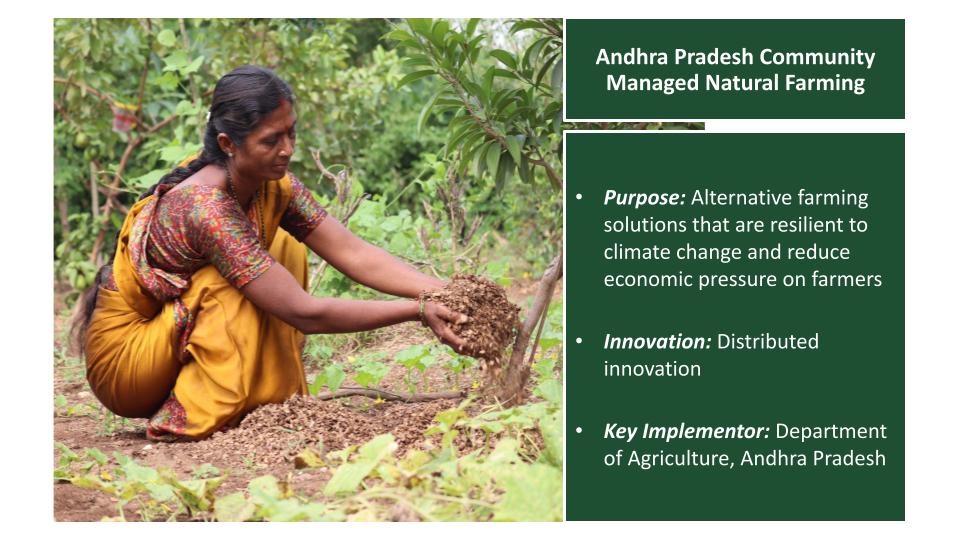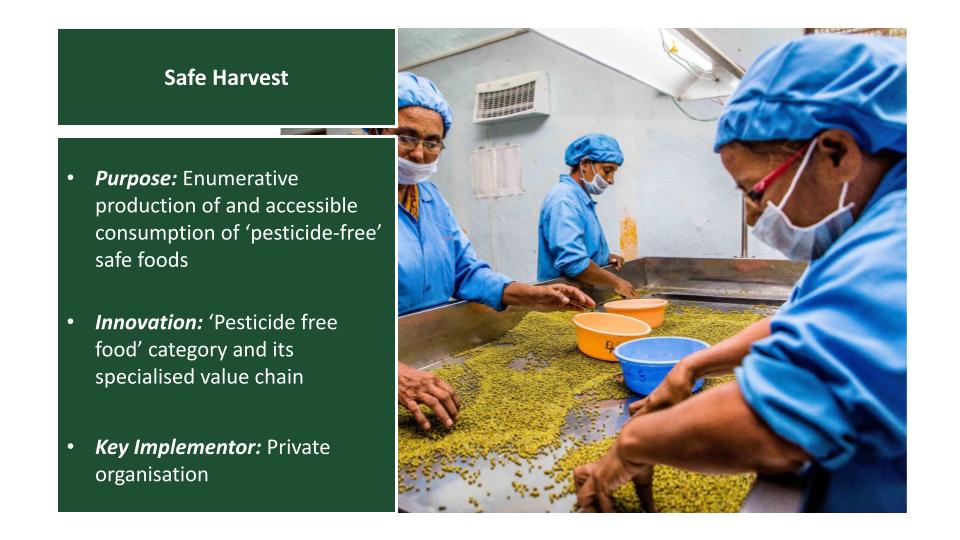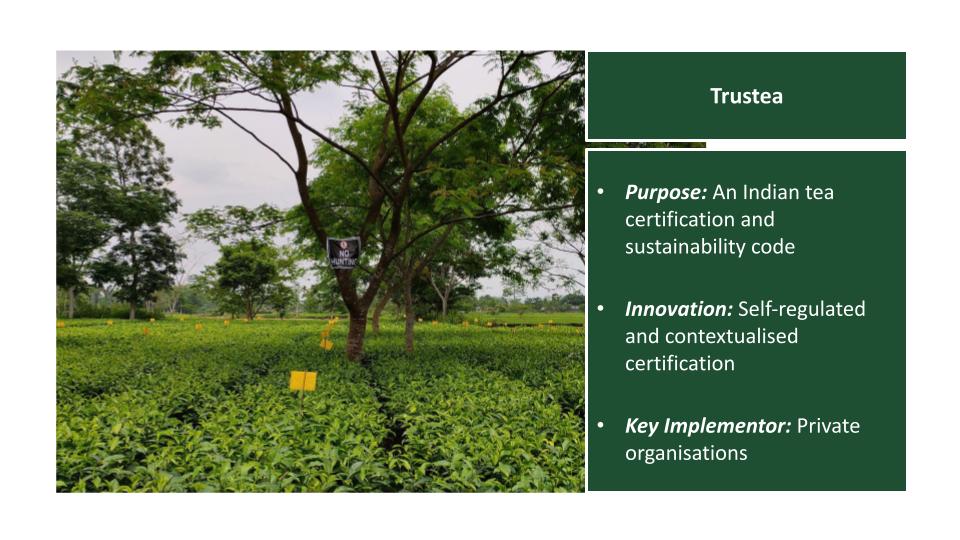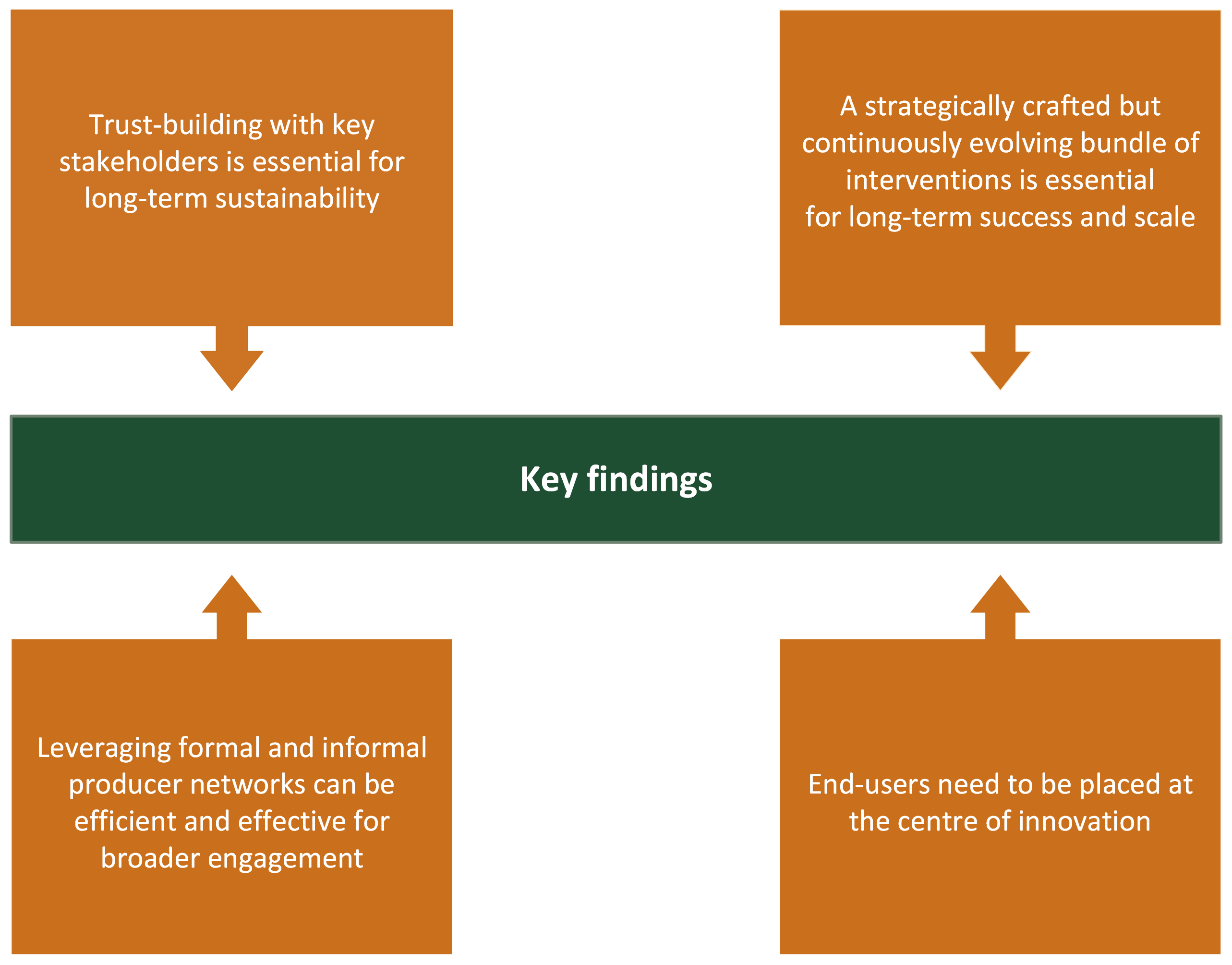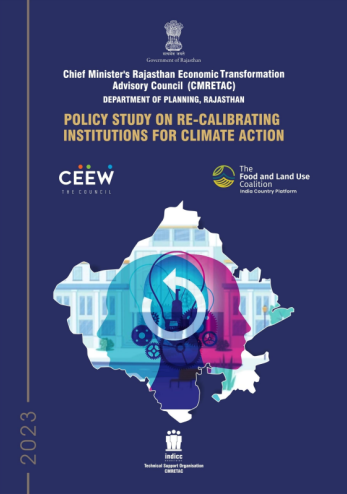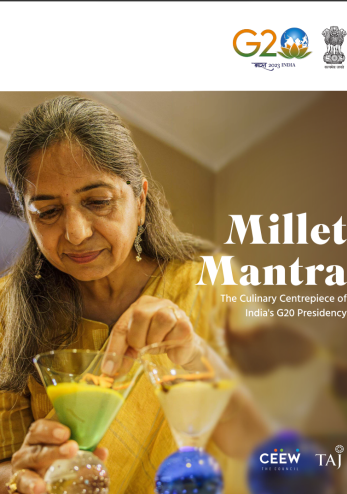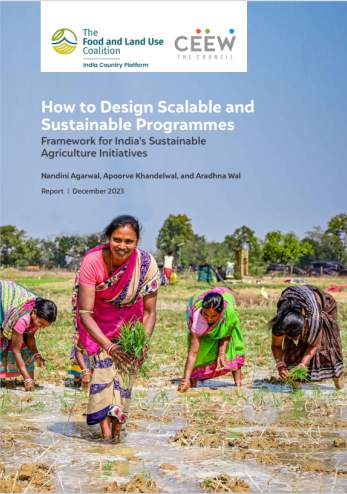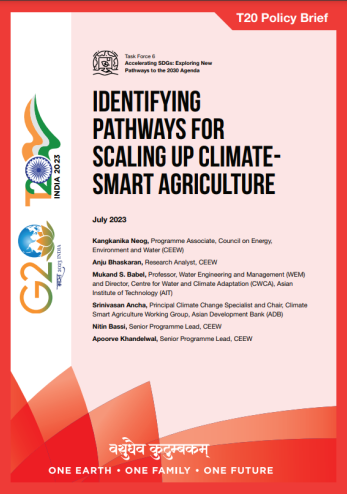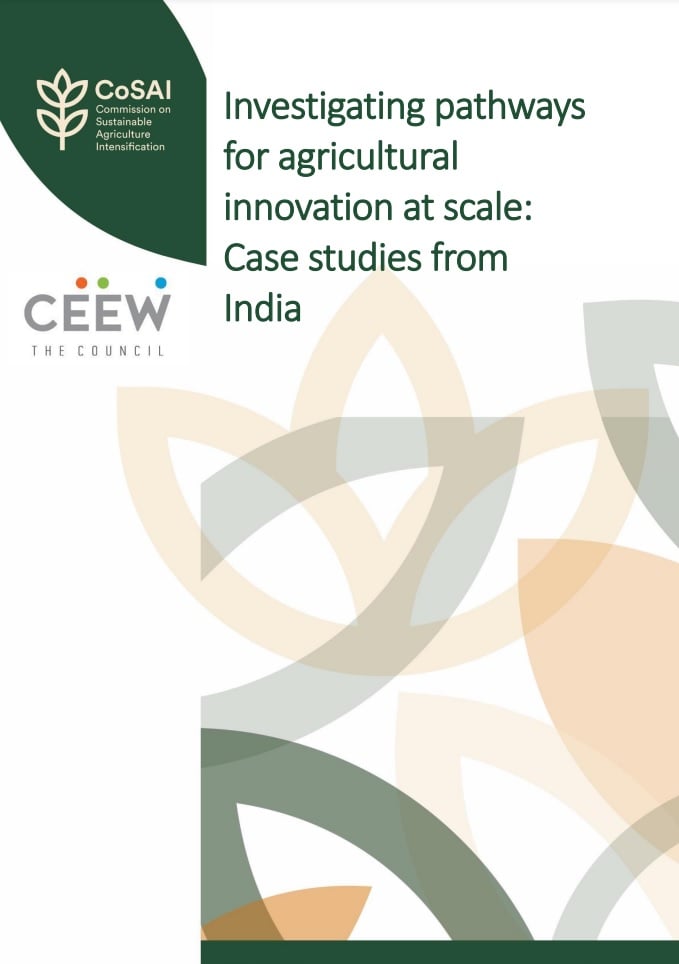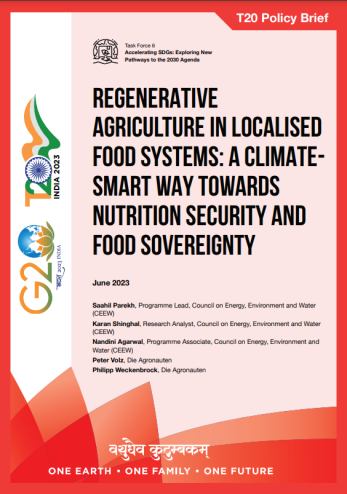Other Publications
Investigating Pathways for Agricultural Innovation at Scale
Case Studies from India
Apoorve Khandelwal, Nandini Agarwal, Bhamini Jain, Darshna Gupta and Anjaly John
February 2022 | Sustainable Food Systems
Suggested citation: Khandelwal, Apoorve, Nandini Agarwal, Bhamini Jain, Darshna Gupta and Anjaly John. 2022. Investigating Pathways for Agricultural Innovation at scale: Case Studies from India. Colombo, Sri Lanka: Commission on Sustainable Agriculture Intensification. 70p.
Overview
This study aims to analyse innovations in sustainable agriculture and the factors that have contributed to the success of Andhra Pradesh Community Natural Farming (APCNF), Safe Harvest and Trustea. It provides learnings for India and other emerging economies to enable high-impact agricultural innovation pathways and partnerships.
Only a few case studies on successful innovations that drive sustainability at scale in Indian agricultural systems are available in India. Further, the available studies generally fall short of providing transferrable insights to innovation managers, investors and other stakeholders. Therefore, this study aims to make suggestions that can be used by initiators of innovative programs (public and private), community organisations and investors, as well as academics and researchers to enable high impact agricultural innovation pathways and partnerships.
Key Highlights
- The three cases covered in this research — Andhra Pradesh Community Managed Natural Farming (APCNF), Safe Harvest Private Limited and Trustea — present three different types of innovations:
- Andhra Pradesh Community Managed Natural Farming (APCNF) is a program by Rythu Sadhikara Samstha (RySS), an Andhra Pradesh government-registered company. It was launched in 2016 against the growing need to find alternative farming solutions under changing climatic conditions and increasing economic pressure on farmers in the state of Andhra Pradesh.
- The innovative program is designed in such a way that farmers become experimenters and innovators to find solutions suitable to their context. It enables distributed innovation, where innovation in farming techniques takes place even outside the leadership of RySS and is distributed among the users of natural farming.
- The emergence of Pre-Monsoon Dry Sowing (PMDS) is one of the key examples of successful distributed innovation. PMDS overcomes dependencies on rainfall for crop germination and breaks the cycle of two agricultural seasons thereby, creating three seasonal cycles with a greater diversity of crops.
- Safe Harvest is a triple bottom line company retailing “pesticide-free” food in India, which arose in response to farmers’ demands for market access and product differentiation.
Image Source: Safe Harvest
- The core innovation at Safe Harvest is the creation of a new product category – “pesticide-free” food – and establishing a specialised supply chain for it. It ensures that there are no chemical pesticide residues or adulterants via rigorous testing during the storing, cleaning and value addition processes of consumer food products.
- Currently, Safe Harvest works via a farm-to-kitchen model, making their products available at a comparable price point (maximum 20 per cent higher) to branded conventional food products via big retailers pan-India. It is the first in India to retail under the “pesticide-free” category, differentiating against the organic and conventional food categories.
- Trustea is a private sector response to meet the need of building an India-specific sustainability standard to be tailored and established in the tea industry. It focuses on issues such as working conditions of labourers, food safety and other prevalent problems in the Indian tea sector.
- The key innovation at Trustea is the process of self-regulation by a sector. Trustea has developed a certification code specifically tailored for the Indian tea sector and consumers to meet their needs and demands for social and environmental sustainability. Directed by a multi-stakeholder council, it is driving the adoption of the Trustea code and supporting capacity building for the same among the tea producers and tea manufacturers.
- As of 2020, Trustea engaged with about 30 per cent of small tea growers (STGs) in India and 20 per cent of tea workers and verified 56 per cent of the total tea produced in India.
- Key Finding across the three cases
- End-users need to be placed at the centre of innovation via end-user engagement and development of tailored context-specific solutions
- Trust-building with key stakeholders is essential for long-term sustainability. Trust between partners, of funders and of end-users is important for successful implementation of an innovation.
- Leveraging formal and informal producer networks/organisations are an effective way to engage with community stakeholders.
- A strategically crafted but continuously evolving bundle of interventions is essential for long-term success and scale.
- Support from relevant government stakeholders can come through different channels such as funding schemes, new regulations, endorsements.
- Unlocking funding for agri-innovations remains a key challenge, therefore, innovative investment mechanisms and more patient-capital are required.
Key Recommendations
- Invest in ensuring that the organisation and the innovation program is designed to engage end-users throughout the trajectory of innovation, wherein the engagement can take various forms such as consultation, participation in decision-making, and co-creation of solutions.
- Develop instruments that establish trust with all the key stakeholders, such as communication, evidence generation and co-creation. Further, invest in understanding stakeholder motivation and behaviour to keep these instruments of trust targeted.
- Enhance formal and informal networks/organisations, such as self-help group networks or FPO development, in the farming communities to enable their multiplier effects. Include these multiplier effects while assessing the long-term benefits of such investments that focus on nurturing networks/organisations in the producer ecosystem.
- Invest in the capacity of innovators to plan strategically and act responsively while keeping reasonable time horizons in perspective.
- Identify partners who can collaborate for identifying, designing and implementing interventions or solutions beyond the zone of influence of the innovator.
Unlocking funding for agri-innovations remains a key challenge. Therefore, innovative investment mechanisms and more patient-capital are required.




